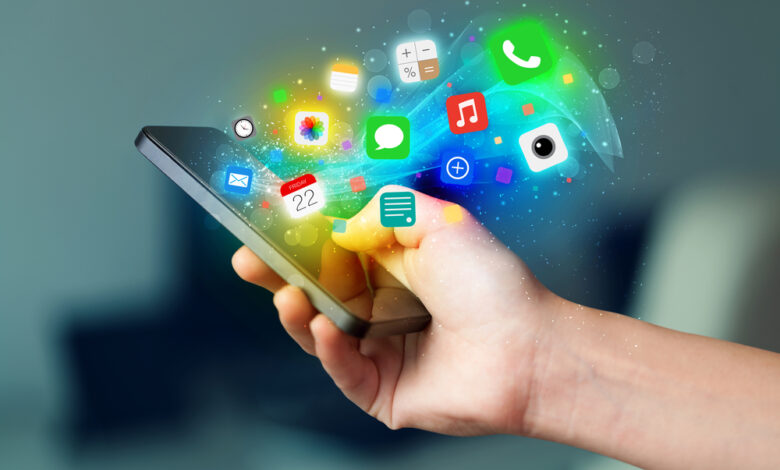Mobile Apps: Revolutionizing the Way We Live and Work

Mobile packages, typically referred to as mobile apps, have turned out to be a necessary part of our everyday lives. Whether we use them to test the climate forecast, order meals, or stay connected with cherished ones, cell apps have transformed the way we live, paint, and play.
In this text, we can explore the sector of cellular apps and their impact on our society and the generation class as a whole.
The Mobile App Revolution
The mobile app revolution commenced in earnest with the advent of Apple’s App Store in 2008, accompanied by the Android Market (now referred to as Google Play).
These systems provided a marketplace for developers to create and distribute their programs, and the reactions from builders and users were overwhelming.
The proliferation of smartphones and tablets fueled this revolution as people realized the ability to have effective software at their fingertips.
Today, cell apps have permeated every factor of our lives. Whether it’s for enjoyment, productivity, training, or healthcare, there is an app for nearly everything.
This fast growth has given rise to diverse classes and genres of apps, making them a cornerstone of the industry.
Categories of mobile apps
Entertainment Apps: These apps encompass streaming offerings like Netflix, music apps like Spotify, and social media platforms like Facebook and Instagram. They are designed to keep customers engaged and entertained, offering a break from the daily grind.
Productivity Apps: Apps like Microsoft Office, Evernote, and Trello have revolutionized the way we paint. These apps allow us to create, edit, and collaborate on files, tasks, and initiatives from our mobile gadgets.
Gaming Apps: The gaming industry has seen a notable transformation with the appearance of cellular gaming. Games like Candy Crush, PUBG Mobile, and Among Us have garnered thousands and thousands of players internationally, making cellular gaming a dominant force inside the gaming enterprise.
Educational Apps: Educational apps have made studying more reachable and tasty. Platforms like Duolingo, Khan Academy, and Coursera provide a wide range of courses and materials to enhance one’s understanding and capabilities.
Health and Fitness Apps: With a growing emphasis on fitness and health, apps like MyFitnessPal, Fitbit, and Headspace have become vital tools for tracking physical and intellectual well-being.
E-commerce Apps: Shopping has transitioned from brick-and-mortar stores to the digital realm, thanks to e-commerce apps like Amazon, eBay, and Alibaba. These apps make it convenient to browse and purchase a large selection of merchandise.
Travel and Navigation Apps: Apps like Google Maps, Airbnb, and Booking.com have simplified travel planning, giving customers the capability to discover motels, discover locations, and navigate readily.
The Impact of Mobile Apps
The ubiquity of cell apps has had a profound effect on generations and society as a whole.
Accessibility: Mobile apps have made the generation more accessible to a broader audience. Users of every age and background can now access an international array of information and offerings with just a few taps on their gadgets.
Economic Growth: The mobile app enterprise has created sizable opportunities for entrepreneurs and builders. It has also contributed extensively to job creation and the monetary boom.
Innovation: Mobile apps preserve the ability to push the limits of innovation. Emerging technology, along with augmented reality (AR) and digital reality (VR), is being incorporated into apps, opening up new dimensions for personal reviews.
Convenience: Apps have simplified our lives by making everyday responsibilities more handy. From cellular banking to food transport, they have streamlined tactics and saved us treasured time.
Global Reach: Mobile apps have linked human beings across the globe, transcending geographical boundaries. This interconnectedness has brought about greater globalization.
Conclusion
Mobile apps are at the forefront of technological advancement, constantly evolving and reshaping our world. From enhancing productivity to supplying leisure, they have emerged as an integral part of our lives.
As the generation class continues to thrive, cell apps will remain a driving force in shaping the manner in which we stay, paint, and engage with the world around us. The future promises even more exciting developments in this dynamic field, making it an interesting time to be a part of the cellular app environment.
FAQs about mobile apps.
Q1. What are mobile apps, and why are they vital in our day-to-day lives?
Mobile apps are software programs designed to run on cellular devices, which include smartphones and capsules. They have ended up being critical because they provide handy solutions for diverse responsibilities and enjoyment, making our lives extra green and enjoyable.
Q2. How have cellular apps revolutionized the way we live and paint?
Mobile apps have transformed our lives by providing clean access to statistics, services, and equipment. They have made paintings extra bendy and productive, and they have provided infinite methods to entertain and teach us.
Q3. What are the one-of-a-kind classes of mobile apps?
Mobile apps span various classes, together with amusement, productivity, gaming, education, health and wellness, e-commerce, and journey and navigation, among others.
Q4. How have academic apps impacted the way we analyze?
Educational apps have made gaining knowledge more handy, enticing, and personalized. They offer a huge range of courses and materials, allowing users to acquire new talents and knowledge easily.
Q5. Can you offer examples of famous cell apps inside the gaming class?
Some famous gaming apps encompass Candy Crush, PUBG Mobile, Among Us, Fortnite, and Clash of Clans, amongst many others.
Q6. How have mobile apps influenced the way we store and conduct e-trade sports?
E-trade apps like Amazon, eBay, and Alibaba have made online purchasing handy and available. They provide a wide range of products and services for customers to browse and purchase from their cell devices.

